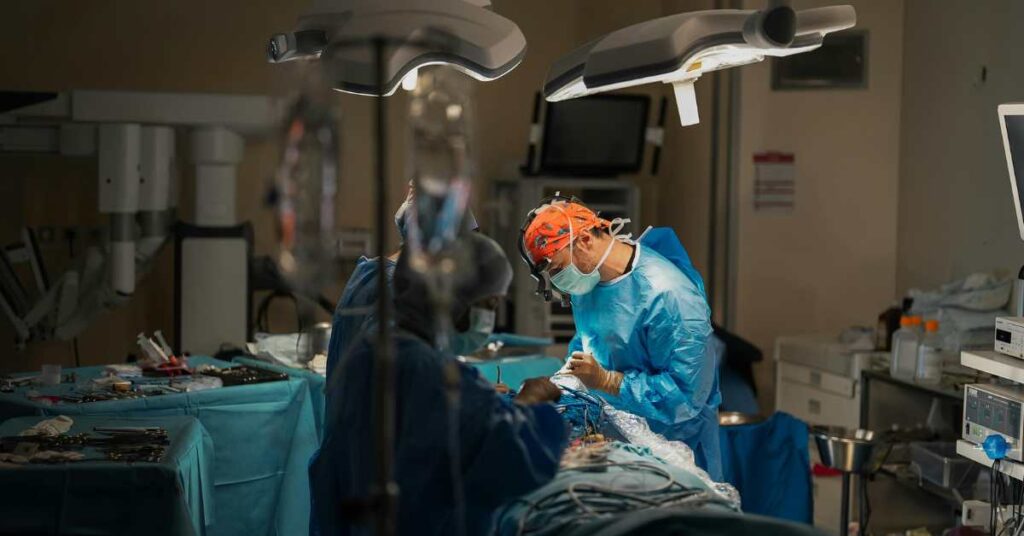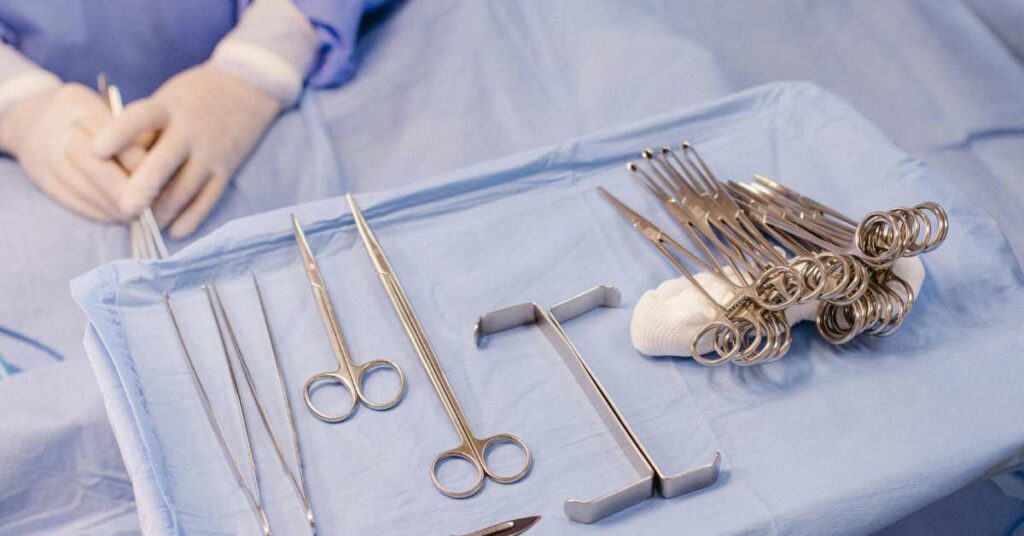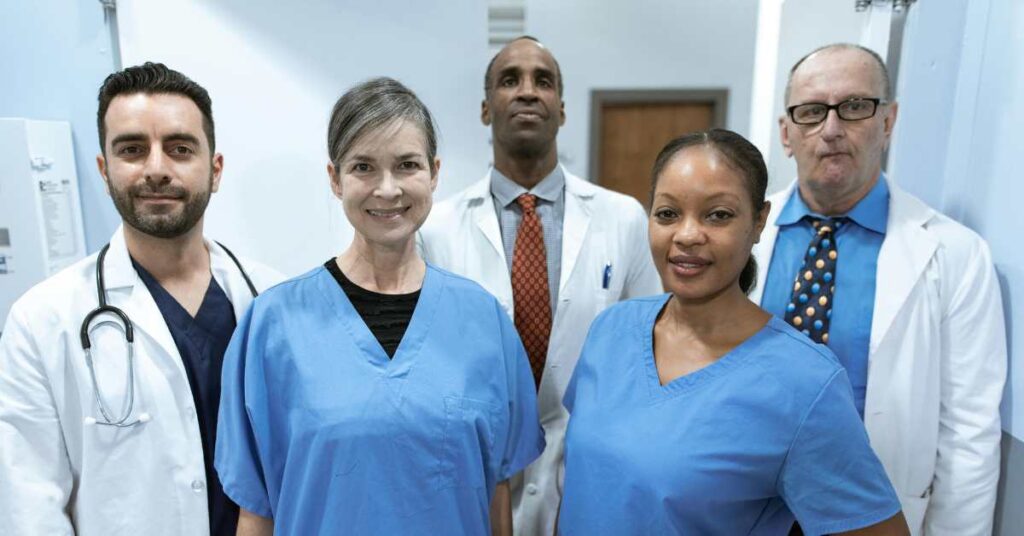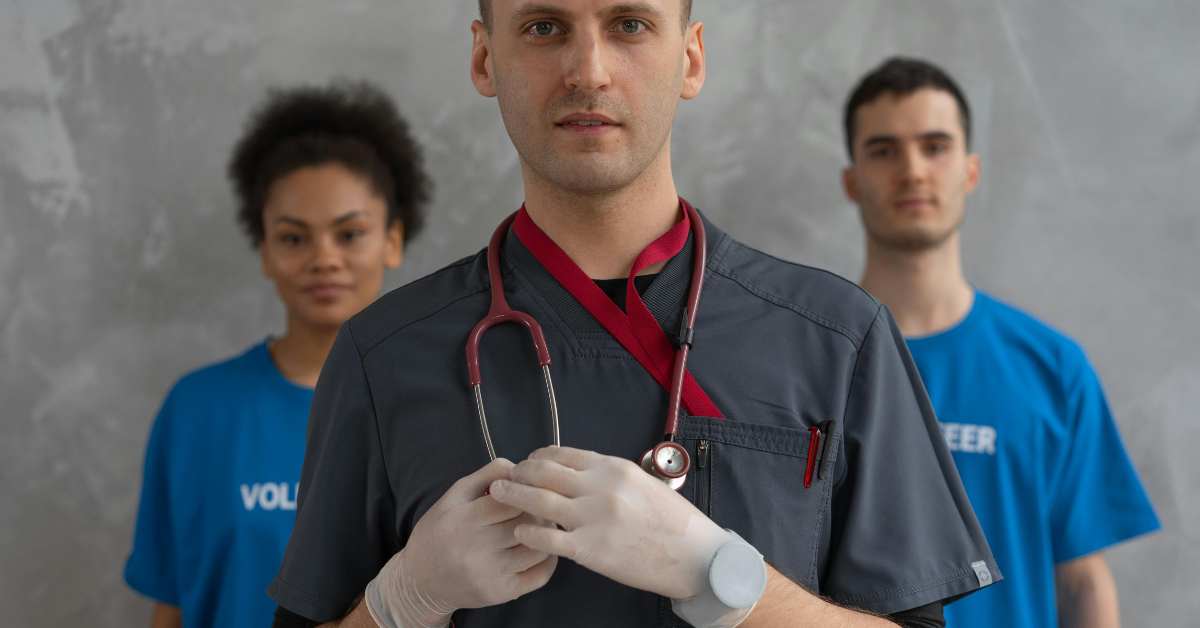In today’s rapid-paced international of healthcare, being a MIGS (Minimally Invasive Gynecologic Surgery) doctor calls for technical skill and a balanced, disciplined life-style. This article explores the important thing behavior for success that each MIGS health practitioner ought to increase to thrive professionally and personally.
Becoming a MIGS health practitioner is a prestigious and tough career direction related to mastering superior surgical techniques. Minimally Invasive Gynecologic Surgery makes a speciality of performing surgical procedures with small incisions, lowering patient healing time and submit-operative headaches. While the job comes with excessive rewards, the lifestyle of a MIGS health practitioner is equally worrying. Understanding the conduct that result in achievement is essential for surgeons aspiring to excel on this area.
The Daily Routine of a MIGS Surgeon
A standard day within the life of a MIGS health care provider is dependent yet full of range. From appearing intricate surgeries to consulting with patients, each day brings its own set of challenges. A sturdy day by day routine is crucial for managing time efficaciously.
Common Elements of a MIGS Surgeon’s Day:
- Surgery hours: Long hours spent inside the working room require stamina and consciousness.
- Consultations: Discuss treatment alternatives with sufferers and offer pre-/put up-operative care.
- Research and learning: Staying updated with the latest advancements in MIGS techniques.
Surgeons who develop a structured daily routine can balance their workload, ensuring they remain productive and avoid burnout.
Key Habits for Success in a MIGS Surgeon’s Career
Success as a MIGS surgeon goes beyond surgical skills. The following habits can significantly contribute to career growth and personal satisfaction:
- Discipline and time management: Prioritizing tasks and sticking to schedules.
- Adaptability: Being flexible and open to handling unexpected cases or complications.
- Precision and attention to detail: A small error in surgery can have serious consequences, so attention to detail is non-negotiable.

Maintaining Work-Life Balance as a MIGS Surgeon
Achieving a balance between paintings and lifestyles is a key mission for any surgeon. The traumatic hours can easily lead to burnout if stability isn’t maintained. Successful MIGS surgeons prioritize their personal and expert lives.
Strategies for Achieving Balance:
- Setting limitations: Keep work cut loose domestic life by way of putting time apart for family and rest.
- Scheduling downtime: Just as paintings is scheduled, personal downtime must also be a part of the plan.
- Prioritizing non-public time: Ensure that hobbies, social lifestyles, and rest are not sacrificed for paintings.
Health and Fitness for a Successful MIGS Surgeon
Physical and intellectual properly-being play a vital function in ensuring toughness and fulfillment within the demanding career of a MIGS medical professional.
Physical health: Long hours within the running room may be bodily hard. Regular exercise allows keep energy levels and awareness.

Mental health practices: Techniques like meditation or yoga can assist reduce stress and improve clarity of mind.
Importance of sleep: Maintaining a regular sleep time table is essential for most effective performance.
Continuous Learning and Professional Development
The scientific area is constantly evolving, and so ought to the abilities of a MIGS physician. Continuous getting to know ensures that surgeons stay on the cutting edge of their distinctiveness.
Staying Updated on Surgical Techniques:
- Conferences and workshops: Attending events to learn about the latest innovations in MIGS procedures.
- Medical literature: Regularly reading journals and research papers to stay informed.
- Professional organizations: Being part of professional networks offers opportunities to learn from peers and share knowledge.
The Role of Communication in the MIGS Surgeon Lifestyle
Clear and effective conversation is crucial for a MIGS health care professional’s achievement, each in the running room and in interactions with patients.
Patient communication: Explaining complex scientific approaches in simple phrases is important for building agree with.
Team collaboration: Working seamlessly with anesthetists, nurses, and other surgeons at some point of operations is vital.
Clarity for the duration of surgery: Effective conversation in excessive-stress situations guarantees smooth surgical results.
Time Management: Juggling Multiple Responsibilities
A MIGS medical professional’s lifestyles is a balancing act of surgical procedures, affected person consultations, and personal commitments. Managing time efficiently ensures that every one elements of existence get hold of the eye they deserve.

Tools and Techniques for Effective Time Management:
- Digital calendars and scheduling apps: These help in planning surgeries, consultations, and personal time.
- Delegation: Working with a highly skilled medical team allows surgeons to focus on critical tasks.
Financial Management and Planning for MIGS Surgeons
Financial planning is an crucial component of a a success MIGS medical professional’s lifestyles. Good economic habits make certain balance and peace of mind, each now and in the future.
- Understanding financial planning: Early career planning, retirement savings, and smart investment strategies are key.
- Managing personal and professional expenses: Effective budgeting helps maintain balance between professional expenses and personal wealth.
Importance of Networking in the MIGS Surgeon Community
In the highly specialized world of MIGS, professional networks play a significant role in career advancement.
- Joining societies and companies: This opens possibilities for career boom and get right of entry to to the modern day trends inside the subject.
- Mentorship: Learning from pro surgeons affords valuable insights for the ones simply beginning out.
- Research collaboration: Collaborating with peers on studies and publications can improve credibility and information.
Personal Growth and Mindset of a MIGS Surgeon
Adopting a boom attitude is critical for long-time period fulfillment in any scientific career. Surgeons who embody demanding situations and constantly seek development acquire more achievement.
Overcoming stressful situations: Viewing setbacks as possibilities for studying fosters resilience.
Building resilience: Mental longevity and flexibility are essential to navigating the highs and lows of surgical exercise.
Technology and Innovation in the MIGS Surgeon Lifestyle
Minimally invasive surgery is changing rapidly, and MIGS doctors must accept new technology first.
Adopting New Technologies:
- Advanced surgical tools: Innovations like robot-assisted surgical operation offer extra precision and overall performance.
- Staying informed on tendencies: Keeping up with technological improvements guarantees the doctor is the usage of the first-rate gear to be had.
Patient-Centered Care in the MIGS Surgeon Lifestyle
At the heart of every successful MIGS surgeon’s practice is patient care. Ensuring patient satisfaction and well-being leads to better outcomes and professional success.
- Focusing on patient outcomes: Prioritizing patient health and recovery should always be the primary goal.
- Listening to patient concerns: Personalized care that takes patient input into account leads to better surgical planning and execution.
Mentorship and Teaching: A Key Part of the MIGS Surgeon Lifestyle
Mentorship and teaching are imperative factors of the MIGS doctor way of life, supporting to form the following technology of surgeons.
Becoming a Mentor for Young Surgeons:
- Guidance and guide: Helping junior surgeons navigate the demanding situations of a surgical profession.
- Sharing expertise: Offering advice on surgical techniques and career improvement.
Challenges in the MIGS Surgeon Lifestyle
The life of a MIGS surgeon isn’t without its challenges. From the physical demands of surgery to managing stress, success depends on overcoming these hurdles.
Physical and Mental Demands:
- Long hours in the operating room: Surgeons often face lengthy, physically annoying workdays.
- Coping with pressure: Finding methods to control pressure is key to avoiding burnout.
Strategies for Managing Burnout:
- Recognizing burnout signs and symptoms: Awareness is step one to prevention.
- Seeking aid: Speaking to colleagues or intellectual fitness specialists could make a large distinction.
Building a Strong Reputation in the Field
A general practitioner’s reputation is constructed on successful surgical procedures and patient consequences. However, a strong public profile also contributes to expert growth.
Patient testimonials: Positive remarks from happy patients is important to building trust.
Publishing studies: Sharing insights with the medical community through studies papers and conference shows elevates a health care provider’s standing.
Social Life and Hobbies Outside of Surgery
Even with a busy agenda, a hit MIGS surgeons recognize the significance of unwinding and pursuing hobbies.
Hobbies for relaxation: Activities like reading, travelling, or sports activities help reduce pressure and improve usual properly-being.
Maintaining social connections: Strong relationships with circle of relatives and pals offer the emotional help needed to manage the pressures of the process.
Final Thoughts
The life-style of a MIGS medical professional is traumatic however profitable. By adopting key conduct together with maintaining paintings-existence balance, prioritizing health, continuing training, and fostering non-public boom, MIGS surgeons can attain long-time period achievement and fulfillment in each their professional and private lives. Aspiring surgeons must bear in mind those conduct as stepping stones to a a success and nicely-rounded career.
FAQs
How long does it take to focus on MIGS after clinical school?
It typically takes round four years of medical faculty, 4 years of residency, and an extra 1-2 years of fellowship training in MIGS. In total, the journey can take around 9-10 years after medical faculty.
What distinguishes MIGS from wellknown gynecologic surgical operation?
MIGS makes use of laparoscopy or robotics to behavior methods with tiny incisions, resulting in earlier restoration and less pain than open surgical treatment.
What demanding situations do MIGS surgeons face while adopting new technology?
MIGS surgeons ought to continuously analyze and adapt to evolving surgical technologies, that may require additional schooling, investment in gadget, and overcoming preliminary getting to know curves.
How do MIGS surgeons manage emotions all through high-stakes surgical procedures?
MIGS surgeons use social help, counseling, and self-care inclusive of meditation and pursuits to control the emotional pressure of complex surgeries and affected person effects.

